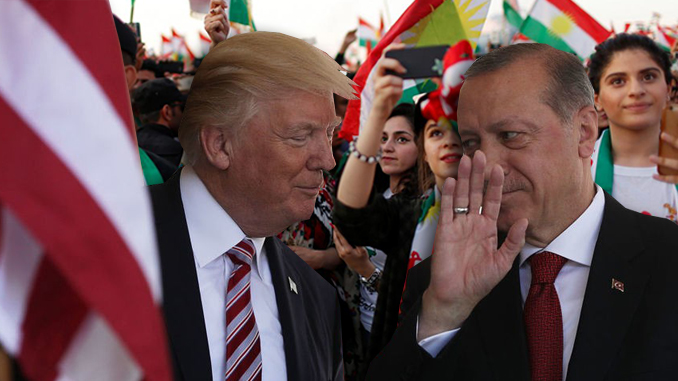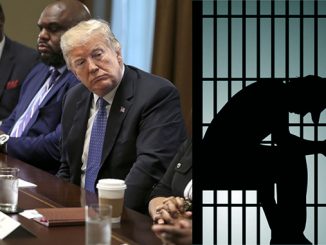
Is the U.S. a trustworthy ally? Many former partners are questioning their alliance given President Trump’s abandonment one U.S. ally, Syria’s Kurds.
By Richard Walker
The Kurds have sacrificed a lot in blood to assist American special forces fighting radical Islamists in Iraq and Syria, but it now appears that, after President Donald Trump’s announcement that the U.S. is pulling troops out of Syria, Washington will abandon Syria’s Kurds after years of propping them up.
The Syrian Kurds are facing the real prospect that Turkey will drive them from the east of the country. In the north, they may soon find themselves at the mercy of a rejuvenated Syrian government in Damascus that would like to control the Kurds’ rich agricultural land in the north and the oil under it.
Numbering 30 million people scattered over Turkey, Iraq, Syria, and Iran, the Kurds have always longed for a homeland of their own. They thought they might get one when the Ottoman Empire collapsed, but they were deceived and denied nationhood by the British who took over much of the region.
Over the past century, the Kurds have been victims of power plays by big nations, and, in 2018, it was no different.
In Syria, the Kurds had hoped that their alliance with the U.S. would not only deliver them from Syrian control but also from Turkey, once the war against ISIS came to an end.
The Kurds fear the Turks as much as Assad, because Turkish President Recep Erdogan has regularly made it clear he wants to crush the Kurds and push them well away from the Syrian-Turkish border, arguing without evidence that Syrian Kurds are aligned with Turkish Kurds who have fought an insurgency within Turkey.
Washington has publicly rebuked Turkey for making the allegation, calling it false. That does not deter Erdogan, who sees himself dominating the region and creating a new Ottoman dawn.
The writing was on the wall earlier this year that the Trump administration might abandon the Kurds in return for better relations with NATO ally Turkey.
In January, Turkey launched a military assault on Afrin, a town close to the Turkish border that the Kurds had seized from ISIS. The United States did not intervene, and the Kurds were forced to flee after losing a lot of men.
The Turkish invasion followed a messy political period when Washington promised to create a border force to ensure there would be no clashes between Turkish and Kurdish forces.
When Turkey protested the proposal, delivered by Secretary of State Rex Tillerson, Washington backed down, and the Turks launched the Afrin attack.
For some observers, Afrin signaled that Washington would cut and run if the Turks moved against the Kurds. There were whispered suggestions that U.S. generals were angry that their Kurdish allies were betrayed for a vague political objective, which may simply have been establishing better relations with Erdogan.
An estimated 2,000 U.S. personnel, many of them contractors and special forces, remain in Syria supposedly to help mop up the last ISIS holdouts.

The Pentagon has publicly warned Turkey that its threats to launch strikes against the Kurds could endanger Americans, but Turkish officials counter that Washington has secretly given Erdogan the green light to launch more strikes. If this is true, it further reinforces a belief in many parts of the region that Washington cannot be trusted.
That could reverberate in Iraq where there is a growing clamor for the U.S. to leave.
A European intelligence source has confirmed to American Free Press that there has been an ongoing struggle between the Pentagon, the White House, and U.S. allies over what to do about Syria. Pentagon hawks and generals in the Middle East have argued that leaving Syria will open the playing field to Russia, Turkey, and Iran. Trump contends that it is time to get out of Syria in keeping with promises he made during 2016 to bring home U.S. military personnel once ISIS was defeated.
The problem is that not everyone agrees that ISIS is defeated. The source also revealed that U.S. allies in NATO have quietly pleaded with the White House not to be hasty in declaring an end to operations in Syria.
When Trump announced on Dec. 19, via a tweet, that ISIS was defeated, and he was pulling U.S. troops out of Syria, there was immediate blowback within the Pentagon and the military.
The president’s message was subsequently adjusted to indicate the withdrawal would not be immediate.
Richard Walker is the pen name of a former N.Y. news producer.





The Kurds are just as bad as Turks, they were complicit with the Armenian Genocide among other things. The KDP treats Assyrians like garbage. None of this is something that you would want. It repulses me to see the Right slobber all over them.
Nope! The kurds fought with us and helped us tremendously! Love my president but wish the Kurds to be taken care of as the allies they are!
Well, if the Kurds hadn’t revolted against their government they wouldn’t find themselves in their current pickle. Actions have consequences! Time for Uncle Sam to leave the Middle East where he has stumbled from disaster to disaster and time for the Kurds to make their peace with the Syrian government.
“Is the U.S. a trustworthy ally?”
Ha! Just ask Noriega and Gaddaffi that question.